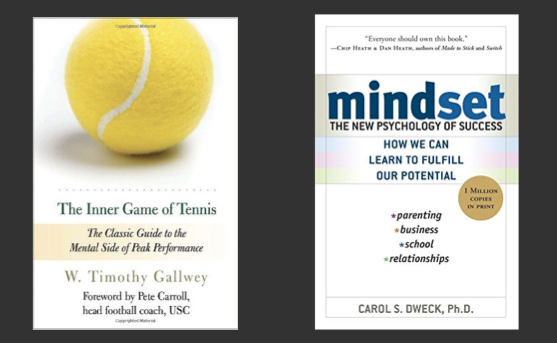April 22, 2016
Achieving Peak Mental Performance – Factor #2: We are what we repeatedly do
The Growth Mindset – 7 Key Factors to Achieve Peak Mental Performance
 |
Factor #2 – We are what we repeatedly do
–
‘We are what we repeatedly do. Excellence, then, is not an act, but a habit.’ – Pete Carroll in Win Forever
The best way to minimize performance anxiety is practice: For every minute of a presentation, you need 1 hour of preparation – the same is true in sports. One of the best things you can do to prepare your athletes for high-pressure situations is to create practices that build up the confidence of players so when these types of situations occur in games they are experienced and know exactly what they are going to do. So how do you create practices like this? Here are some great guidelines:
- Lots of small-sided games. Kids need lots of touches, and you get more touches with the ball if you are 3 on 3 vs. 5 on 5 or 11 on 11.
- Freeplay is huge. No parents or coaches. Try having a silent Saturday – coaches and parents aren’t allowed to say ANYTHING.
- Task design – from Stuart Armstrong of The Talent Equation and Reed Maltbie from CoachReed.com.
- Don’t jump in too early – many people get uncomfortable when they see someone struggling and not being able to get there quite yet- so they either jump in and solve it for them, or they move on. But this never allows the learning to happen. The moment when they are close to figuring it out is actually the sweet spot. So the players shouldn’t think everything is easy and fun – it should be a little frustrating and uncomfortable.
- Implicit Learning – False praise and spoon-feeding kids actually creates a fixed mindset in them. Create the task, then say very little – and observe their attempt to solve the problem, and observe what choices they make, then allow them through a questioning approach subsequent to the activity to feed back to you what they are experiencing, then allow them to solve problems.
- Give them a challenge, and see if one of the players can figure it out on their own. If one does – let him/her show the team. If not, give them a hint and let them keep trying.
- Design your practices like a video game designer: Create ‘levels’ that are within their reach, but it’s a big stretch that might feel just out of their reach. So when they figure something out – ask them ‘are you ready for level 2 now?’
Knowing that you are outworking your competition is a huge confidence-builder – I love the quote in a recent article about Kobe Bryant’s work ethic:
–
“It’s not so much to do with the competition of the players and all this other stuff,” he said, “because I figured out at an early age, even if I showed them what it is that I do, they wouldn’t do it, just because it’s so boring and so much repetition that it takes a long time to do.”
